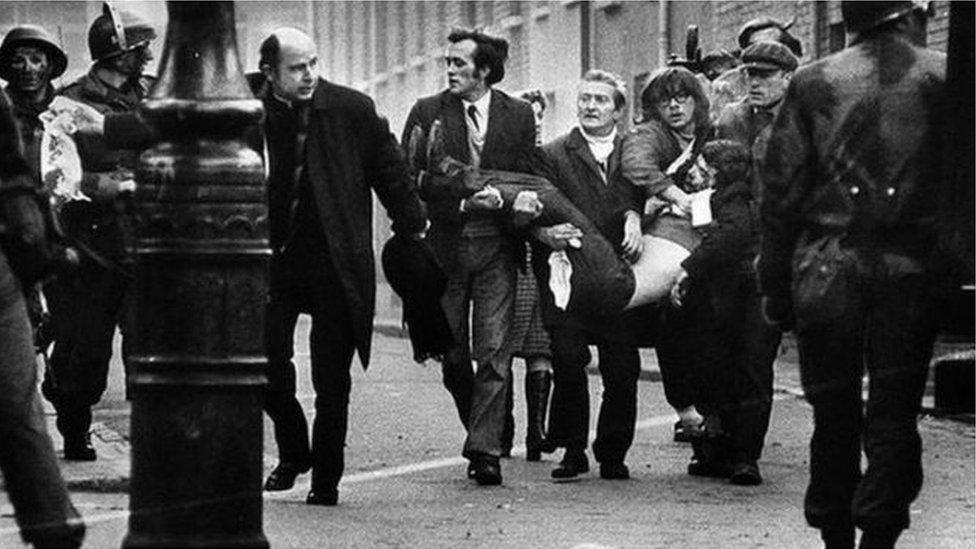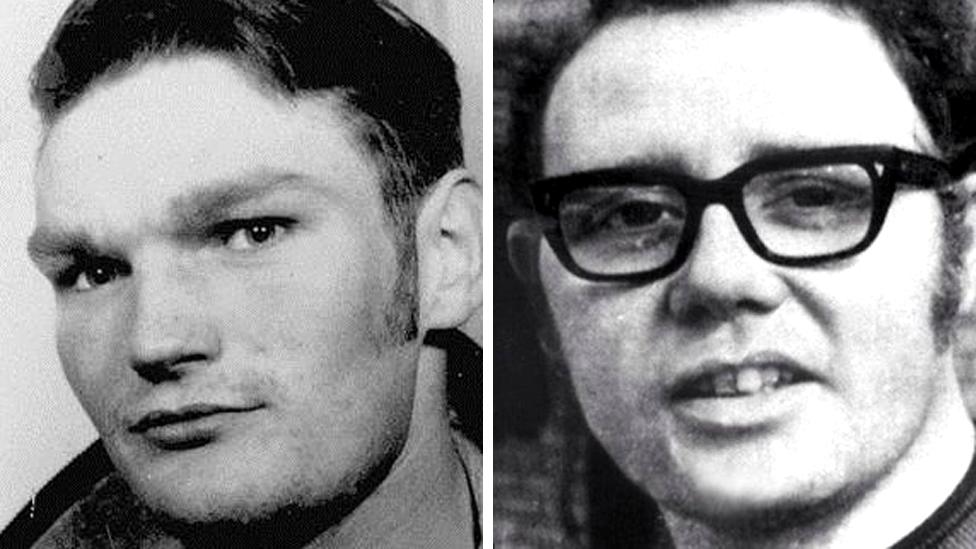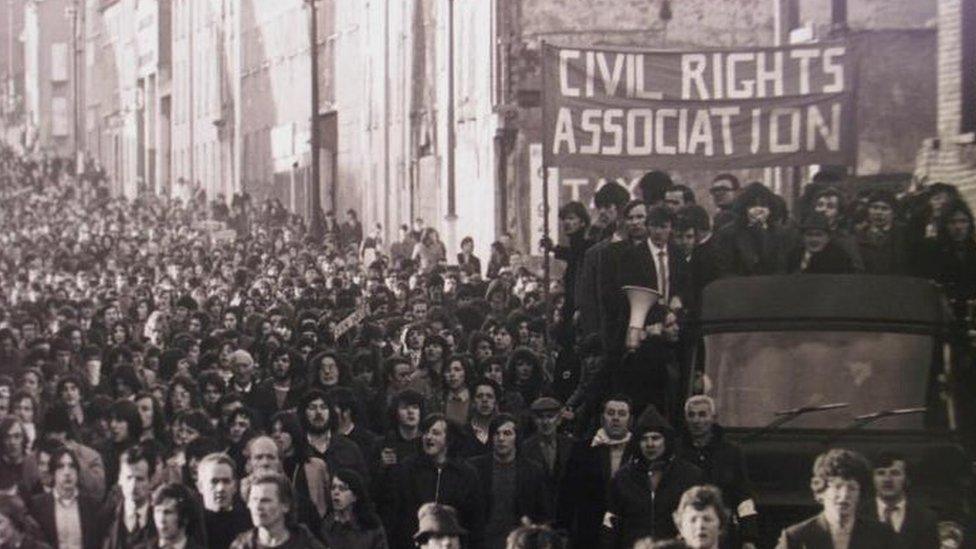Bloody Sunday: Soldier F will face murder trial
- Published

Thirteen people were killed and 15 wounded on Bloody Sunday
A former British soldier will stand trial for two murders and five attempted murders on Bloody Sunday.
Among the charges, he is accused of murdering William McKinney and James Wray in Londonderry on 30 January 1972.
Mr McKinney's brother, Mickey McKinney, welcomed the decision to send Soldier F to trial.
He said "the development has been a long time coming" and that the trial should get under way as soon as possible.

James Wray and William McKinney were among 13 people shot dead at a civil rights march
Thirteen people were shot dead and at least 15 others injured when members of the Army's Parachute Regiment opened fire on civil rights demonstrators in the Bogside more than 51 years ago.
The day became known as Bloody Sunday. It is widely regarded as one of the darkest days of the Northern Ireland Troubles.
A hearing was held in Derry on Thursday to decide whether the case would proceed.
District Judge Ted Magill said the evidence was strong enough to send Soldier F for trial at the Crown Court in Belfast.
A date for the trial has not yet been fixed.
Mickey McKinney told BBC News NI that it is imperative the trial gets under way quickly.
Bloody Sunday: Soldier F trial is one day at a time, says brother
"Next month represents the 52nd anniversary of the events of Bloody Sunday.
"Witnesses are dying and becoming unavailable, it is therefore incumbent upon the Crown to bring this prosecution to a swift and successful conclusion."
He said his brother is missed every single day by his family and that today is another step in the right direction in a long process in getting justice.
Chairperson of the Bloody Sunday Trust Tony Doherty said they welcomed the decision, but criticised the length of time it has taken to get to this point.
"It is over 13 years since the Saville Report was published," Mr Doherty said in a statement.
"It remains a constant source of anger amongst the families that it has taken this long to get to the stage where one soldier is to be prosecuted.
"We welcome today's decision and look forward to the beginning of the trial."

Who is Soldier F?
A former British soldier who served with the Army's Parachute Regiment in Northern Ireland during the Troubles
He cannot be named due to an interim court order granting his anonymity
Soldier F is being prosecuted for the murders of William McKinney and James Wray on Bloody Sunday
He also faces charges of attempting to murder Patrick O'Donnell, Joseph Friel, Joe Mahon, Michael Quinn and an unknown person on the same date

How did we get to this point?
The decision on whether to prosecute Soldier F has been more than four years in the making, and involved several legal challenges and U-turns.
Having weighed up 125,000 pages of material, prosecutors said in March 2019 that they would send Soldier F to trial for the murders of Mr Wray and Mr McKinney, as well as several attempted murders.

Demonstrators took part in a civil rights march through the streets of Londonderry on 30 January 1972
However, in 2021, prosecutors dropped the case after the collapse of the trial of two other Army veterans who were accused of another Troubles-era killing.
At the time, the families of the Bloody Sunday victims said the decision was a "damning indictment of the British justice system" - their legal challenge against the decision was successful.
The court then rejected a bid by the Public Prosecution Service (PPS) to have its own appeal referred to the Supreme Court.
Prosecutors subsequently announced that they had decided to resume the prosecution in September last year.
What happened after Bloody Sunday?
The UK government announced there would be an inquiry led by the Lord Chief Justice, Lord Widgery, the day after the killings.
The Widgery Tribunal report, released in April 1972, largely cleared the soldiers and British authorities of blame, although he described the soldiers' shooting as "bordering on the reckless".
The report was seen as a whitewash by families of those killed and injured, who commenced a decades-long campaign.
In 1998, the then prime minister Tony Blair announced that a new inquiry would be held, headed by judge Lord Saville.
It took 12 years to build a report, becoming the longest-running inquiry in British legal history and costing about £200m.
EXPLAINER: What happened on Bloody Sunday?
The inquiry found that none of the casualties were posing a threat or doing anything that would justify their shooting. Then prime minister David Cameron apologised for the killings, describing them as "unjustified and unjustifiable".
The Police Service of Northern Ireland (PSNI) began a murder investigation into Bloody Sunday after the Saville report was released.
It took a number of years to complete and detectives then submitted their files to the Public Prosecution Service towards the end of 2016.